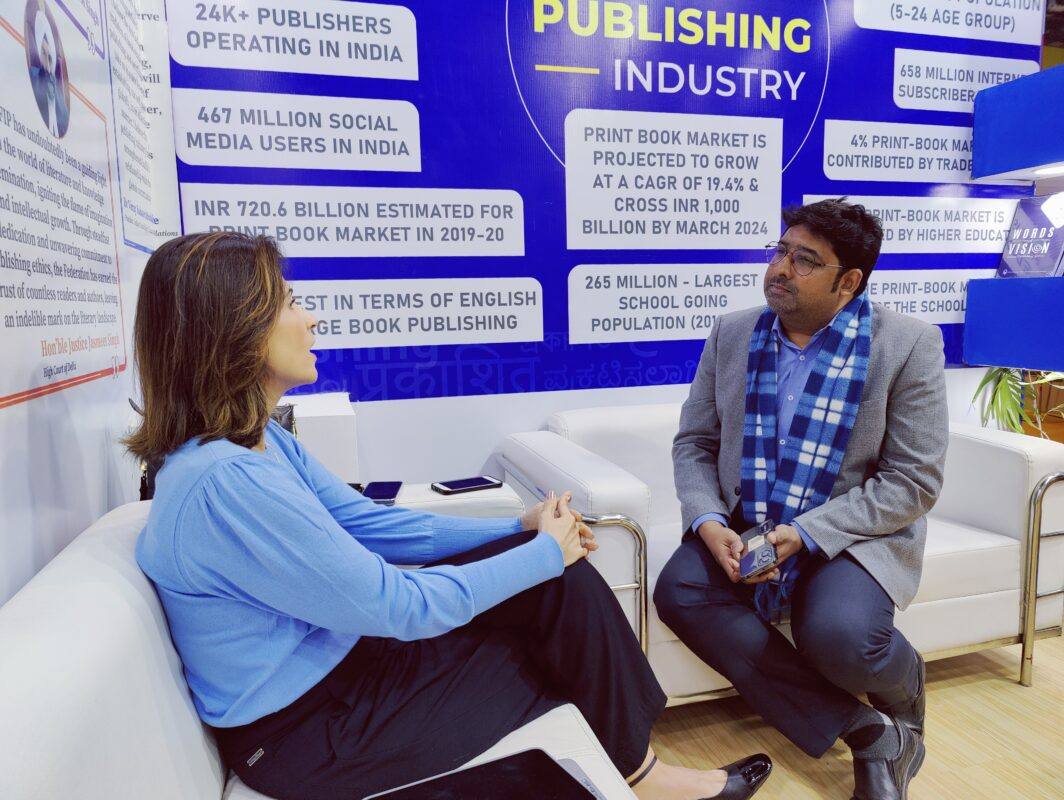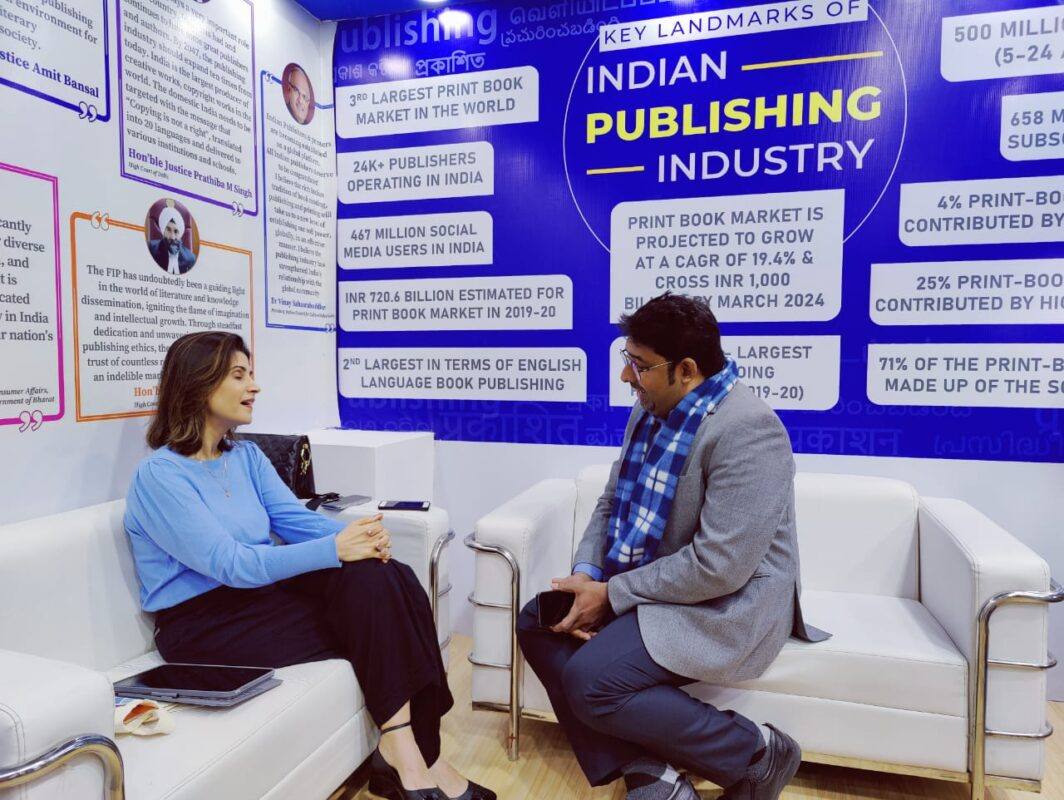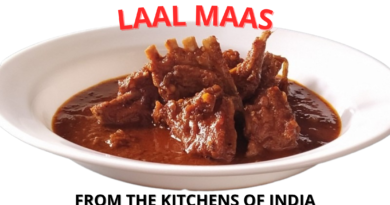This Is Karine Pansa, Leading The Amazing World Of Books
Today we have with us Ms. Karine Pansa. She is the President of the International Publishers Association and has been awarded the Global Ambassador of Publishing and Education Award by the Federation of Indian Publishers.

WFY: I represent the Indian diaspora media. And of late, we have had a lot of new authors and publishers from the Indian diaspora the world over. And I just want to ask, you know, looking at international publishing and you being the president, how many—I think it’s six months now, seven months? I think it’s been more than a year. So where do you see Indian diaspora publishing going or Indian publishing going from now? What is the future of that?
KP: The places where I saw were mainly, let’s say, here in Asia. I saw a lot. In my country itself, there is some content that is being published. I come from Brazil.
I see lots of Indian communities worldwide and important communities worldwide in the UK and in some countries in Europe. And you said a number of 30 million.
And I think that having, you know, this content published worldwide is very, very important because of the mother tongue, heritage, and everything that comes with family values. That is so important: generation after generation being shared with the new members.
And India is very rich and diverse in terms of culture, art, and literature everywhere. The content right now is about aesthetics, right? What content do we have right now? How have the publishers received it internationally? Are they interested, and do you see scope in that?
KP: Yeah, sure.
Always, there is interest in diverse, quality content. And India is showing that they have quality, diverse, and international content that can be used worldwide. Not only, I mean, folks that are regional, not only content that is regional, but also international content that can be adapted worldwide.
And the culture is very rich. And the main focus is on self-care, food, good food, and all these things related to your culture. It’s very well respected worldwide, which I find really interesting.
Q: I just wanted to ask you commercially, you know, when you look at Indian content, Indian publishers, Indian authors, vis-à-vis the international ones, you know, the non-Indians and the Indians. How do you value them on a scale, from one to ten? Where do they stand in the commercial sphere?
KP: They cannot be compared because I think that each region has its own specifics and its own value in other countries. So, I wouldn’t quote, let’s say, one to ten, but I would say that the type of content that you produce, as I was saying, things related to your culture, is really well accepted worldwide.
So, you should value it, and you should. When I say you, I mean Indians.
You should make sure that you value the content and the heritage that you have behind you.

Q: I want to ask specifically, as the president of IPA, what would you do in your capacity to promote, facilitate, or encourage Indian content, Indian publishers worldwide, and Indian authors? What would be the steps you have in mind, you’re taking, or you have taken?
KP: So, one of the things that I talk a lot about in my statements and in my interviews is the value of publishing.
So, we publishers are responsible for the content that we publish. So, if we are talking about medical or educational content, we need to check peers, we need to check where the data comes from, and we need to have respected authors. And this all has a value, and it’s all taken care of from the publisher side, and it needs to be valued.
So, the content needs to be valued, remunerated, and seen as something that was curated and that was well worked. So, I always talk about the value of publishing. So, I think what I am doing is saying to the publishers, You are worth it; you are a good industry, so make sure that you’re valued.
And I would say the same thing to the people who are worldwide, and they want to talk about their own culture, and they want to talk about their own reality.
Q: India is very rich in culture, diversity, aesthetic sense, and everything else. So, what steps would you suggest or advise in keeping it plagiarism-free? The copyrights are now in place, and AI is a big player everywhere. And how do you ensure that Indian content or Indian-origin contents are well preserved, taken further, or promoted adequately?
KP: That is a very good question, and it’s not only for India that we need to talk about that. So, generative AI is, let’s say, something that we have been discussing a lot because the ad tech and the big tech companies are using the content that is on the internet to reframe the new content that is being generated.
Q: India is very rich in mythologies; we have a lot of ancient texts readily available, like the Ramayana, Mahabharata, Amarkathas, Puranas, etc. It’s very easy to take the help of an AI or a generative AI to take some part of it and create new content, which is much more similar, and you don’t have to do anything original. And that’s where we need to preserve our identities as well.
So, these companies, these big tech companies, need to understand that content is valued and that content needs to be respected. So, if they’re using it, they need to let users know that they’re using it and what they’re using. And if this is not free content, because the ones that you have mentioned are in the public domain, there is lots of content that is being used that is copyrighted material, that is not being paid for, that is not being remunerated.
So, they need to be open-minded.
Q: Does the International Publishers Association intervene in any of these cases?
KP: We are speaking louder and louder to make sure that we value our content and that we value our businesses. So, what I’m doing here in India is speaking to those associations. Make sure that your members know what we’re talking about. They were not aware of the AI consequences.
They were just thinking about ChatGPT, and they were thinking about the authors that were going to disappear. But no, it’s before that. They’re using the content from their authors to generate a new one.
So, this is something that needs to be discussed. And the big techs need to understand that there is value in this content.
Q: India is a hugely populated country and academically very progressive. A lot of youth are learning, and there’s a lot of academic publishing happening in India. And even if you look at international students, India contributes a larger percentage of academic students worldwide. Where do you see Indian academic publishing going?
We have our ancient wisdom, which has been part of the curriculums here, plus the new age and new modern wisdom in the curriculums and the education curriculums we have. So, where do you see academic publishing in India, or in India as we’re going, with IPAs involved?
KP: I see it, you know, developing as… It is developing everywhere else, but again, you need to embrace technology.
I’m not telling you to leave technology; don’t use AI. I’m telling you to make sure that your content is valued when you use AI. Because this can be a support, it can be used in any place, not only in academic research.
But we need to make sure that plagiarism is not occurring; no one is copying and pasting content. And there are apps that can figure it out, including with your other languages, not only with English or with other famous, let’s say, languages. But there are apps that can be used.
So, again, you have such good content that needs to be valued. And people who study and who are available to medicine, academic journals, and everything. So, just make sure that you continue to produce your work and are remunerated for that.
The pay parities and all those things—let’s look for the international standards happening here as well. Yeah. It was lovely speaking with you, Mr. Williams. Thank you.






I’m very happy to discover this site. I need to to thank you for ones time for this particularly fantastic read!! I definitely appreciated every bit of it and I have you saved as a favorite to see new information in your site.